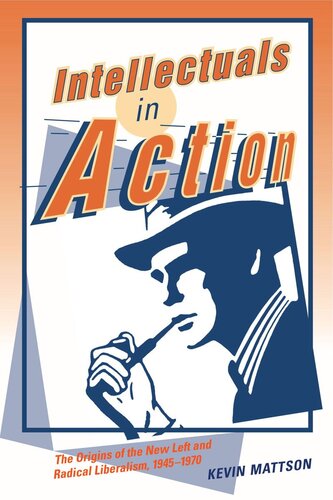

Most ebook files are in PDF format, so you can easily read them using various software such as Foxit Reader or directly on the Google Chrome browser.
Some ebook files are released by publishers in other formats such as .awz, .mobi, .epub, .fb2, etc. You may need to install specific software to read these formats on mobile/PC, such as Calibre.
Please read the tutorial at this link: https://ebookbell.com/faq
We offer FREE conversion to the popular formats you request; however, this may take some time. Therefore, right after payment, please email us, and we will try to provide the service as quickly as possible.
For some exceptional file formats or broken links (if any), please refrain from opening any disputes. Instead, email us first, and we will try to assist within a maximum of 6 hours.
EbookBell Team

0.0
0 reviewsBorn in 1966‚ a generation removed from the counterculture‚ Kevin Mattson came of political age in the conservative Reagan era. In an effort to understand contemporary political ambivalence and the plight of radicalism today‚ Mattson looks back to the ideas that informed the protest‚ social movements‚ and activism of the 1960s.
To accomplish its historical reconstruction‚ the book combines traditional intellectual biography—including thorough archival research—with social history to examine a group of intellectuals whose thinking was crucial in the formulation of New Left political theory. These include C. Wright Mills‚ the popular radical sociologist; Paul Goodman‚ a practicing Gestalt therapist and anarcho-pacifist; William Appleman Williams‚ the historian and famed critic of "American empire"; Arnold Kaufman‚ a "radical liberal" who deeply influenced the thinking of the SDS. The book discusses not only their ideas‚ but also their practices‚ from writing pamphlets and arranging television debates to forming left-leaning think tanks and organizing teach-ins protesting the Vietnam War. Mattson argues that it is this political engagement balanced with a commitment to truth-telling that is lacking in our own age of postmodern acquiescence.
Challenging the standard interpretation of the New Left as inherently in conflict with liberal is‚ Mattson depicts their relationship as more complicated‚ pointing to possibilities for a radical liberalism today. Intellectual and social historians‚ as well as general readers either fascinated by the 1960s protest movements or actively seeking an alternative to our contemporary political malais‚ will embrace Mattson’s book and its promise to shed new light on a time period known for both its intriguing conflicts and its enduring consequences.